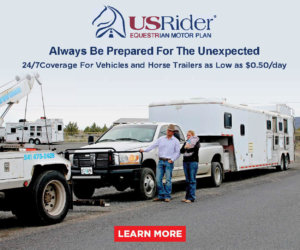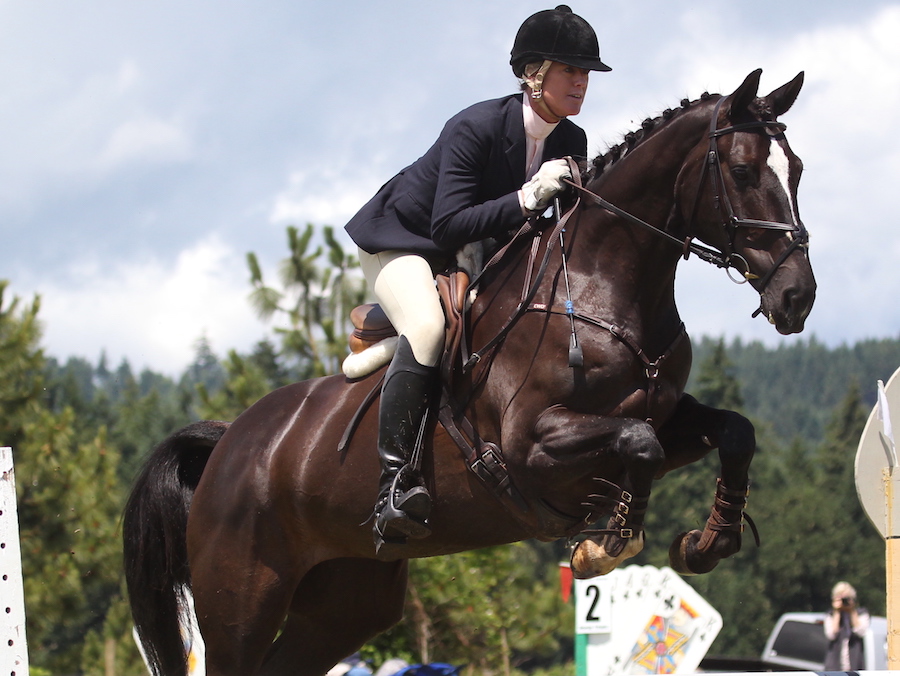Raising Horses Takes Grit
by Kim Roe
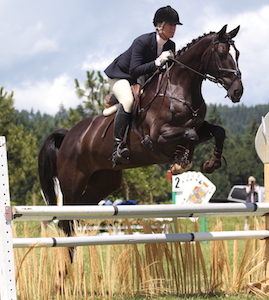
Julie Murphy has bred and raised sport horses for decades. One of the first breeders of warmblood horses in the Pacific Northwest, her horses have competed successfully in dressage, hunter/jumper, and eventing. Julie raises her horses in a herd setting on her ranch in Oregon, where all ages spend their days playing together. Julie cares for her horses herself, managing everything from genetic studies to stall cleaning. She keeps many of her horses into their senior years.
How did you start with horses?
As a pre-WWII baby, I qualify as vintage, but not yet antique, though sometimes my body disagrees. I grew up west of Wapato, Washington on the Yakama reservation. My father farmed initially with draft horses — two teams and a spare, and at 3 years old I pestered my father for rides. These were always too brief, no doubt because sitting behind the horse’s collar hanging onto the balls at the top of the harness was not a particularly safe position.
I got my own horse when I was 12. A truck with stock panels drove into the yard and the driver asked to see Julie. When I identified myself, the driver asked where I wanted him to put my horse. I pointed to the corrals and told him the loading ramp was behind the barns. “Nah, I don’t need it,” was his reply. Inside the truck was a stocky, 15.2 hand palomino pinto. The horse jumped right off the back of the truck.
That gelding bucked me off every day for several months. My father said no saddle until I could ride the bucking. For the next six years, I used a saddle only when necessary (like when moving neighbors’ cattle for pocket money). Upon graduating from high school, I very reluctantly sold my horse as a kid’s horse to help pay tuition for nursing school in Portland.
From there it was 20 years as an Army nurse, including 4 years in Southeast Asia (two and a half of those years working as a triage nurse in Vietnam) and four years in Germany. It was in Germany that I became acquainted with warmbloods.
Why warmblood horses?
My father had a couple of Thoroughbred and Appendix Quarter Horse mares. I used one to breed my first warmblood foal in 1988. It was going to be “just one” so I could have a better mover as I was interested in trying dressage.
How many foals have you raised?
That “just one” turned out to be more than 15.
Do you have any favorite horses?
My warmbloods carry at least 1/4 Thoroughbred. I like the energy and “try” the TB provides. I love my chestnut mares! The two mares I would be most reluctant to part with are 15-hand Coco (TB), by Napur (she’s hot but sane, very athletic, and sweet — she’s raised four sport pony foals) and 16.1 hand Lizzie, by First Gotthard. Lizzie is serious, opinionated, attentive, and an elegant mover who has provided me with two premium colts. Both bond strongly and want to work.
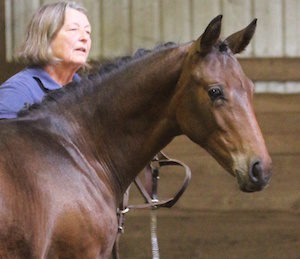
What are your breeding goals?
I want to improve conformation and talent but foremost is temperament. I find genetics, identifying strengths and transmissible traits, and studying the work of breed registries and successful professional breeders very interesting. I’ve two sets of full siblings and there were definite similarities and significant differences. Riding or working with a horse should be rewarding for both rider/trainer and the horse. A good temperament greatly impacts the horse’s ability and willingness to cooperate and learn.
What do you like least about raising horses?
When I sell a horse I often say, only partly in jest, that the bill of sale is actually adoption papers. I expect the purchaser to do well by the horse. It’s very distressing when that doesn’t happen due to an owner’s lack of knowledge, competence, or care.
What is a positive to raising horses?
There are health benefits in keeping horses. I have found that after an hour or two of working in the barn my blood pressure drops at least 10 points. And who needs a gym membership after lifting 80-pound hay bales and cleaning stalls? It does keep one active and requires getting up in the morning even when it would be so nice to sleep in. When I am late, Lizzie lets me know in no uncertain terms.
Julie currently has two sport pony foals for sale. Contact [email protected] for information.
Originally Published November 2017 Issue
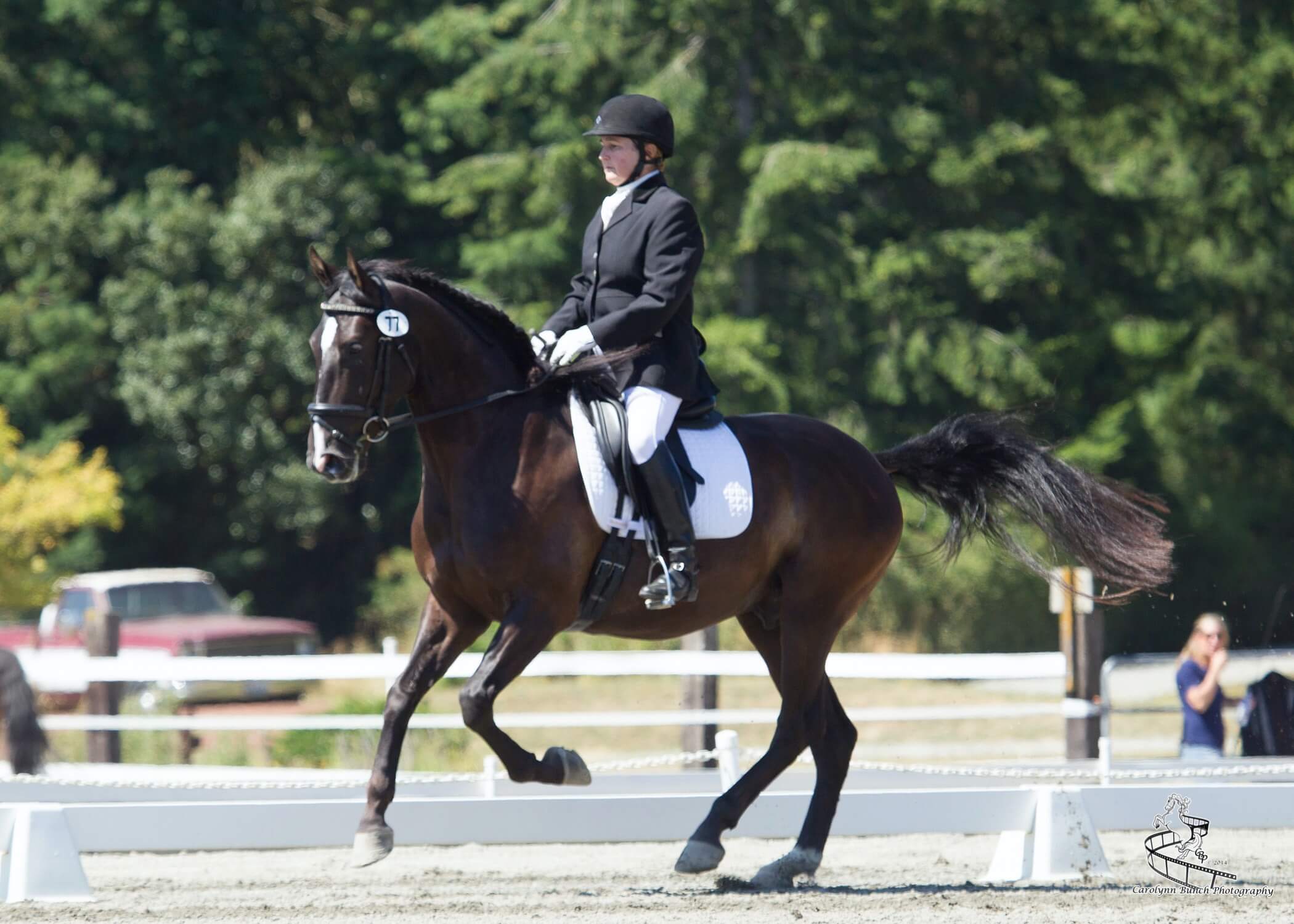
Kim Roe grew up riding on the family ranch and competed in Western rail classes, trail horse, reining, working cow, and hunter/jumper. She trained her first horse for money at 12 years old, starting a pony for a neighbor.
Kim has been a professional dressage instructor in Washington state for over 30 years, training hundreds of horses and students through the levels. In recent years Kim has become involved in Working Equitation and is a small ‘r’ Working Equitation judge with WE United.
Kim is the editor of the Northwest Horse Source Magazine, and also a writer, photographer, and poet. She owns and manages Blue Gate Farm in Deming, Washington where she continues to be passionate about helping horses and riders in many disciplines.



